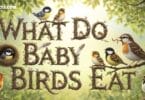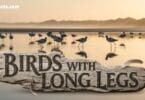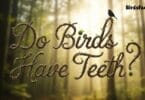25 Majestic Birds Of Colorado Ultimate Guide With Photos. These are 25 majestic birds of Colorado with their beautiful photos and information about each of them.
Colorado Birding and Nature Trail
The Colorado birding and nature trail is a great place for those who enjoy seeing birds and nature. The website provides a map of the trails and the routes. The map is in a format that makes it easy to see the location of each trail.
25 Majestic Birds Of Colorado Ultimate Guide With Photos
Each trail has its own description and directions on how to get there. There are also links to helpful websites that have information about the birds that you are likely to see on the trail.
The Colorado birding and nature trail is an excellent place to take children and their families. The trails are safe and they provide an excellent view of birds in the natural habitat.
Lark Bunting
The Lark Bunting is a medium-sized songbird found in temperate regions of the Northern Hemisphere. This bird has a short, rounded tail and a very large head. It has a light brownish-gray back with darker streaks and spots. The wings are black with a white band. The belly is white with a few light gray streaks.

25 Majestic Birds Of Colorado Ultimate Guide With Photos
In this section we will be discussing the lifecycle of Lark Buntings.
Lifespan
Larks have a lifespan of 2 to 3 years.
Wingspan
The wingspan of a lark is about 10 inches.
Size & Shape
A lark is a medium sized bird. Its height is about 5 to 7 inches and its weight is about 1.5 to 2.5 ounces.
Habitat
Larks are found all over the world. They are usually found in grasslands, fields, deserts and mountains.
Migration
Larks migrate to warmer regions in the spring and fall.
Breeding
Larks breed from April to May.
Nesting
Larks nest in colonies and build their nests in trees, bushes, buildings and rock ledges.
Color Pattern
Larks have a colorful pattern on their wings.
Behavior
Larks are usually seen singing during the day.
Brown Capped Rosy Finch
The Brown Capped Rosy Finch is a member of the finch family. It has a slender body with a long tail. Its bill is yellow in color and its legs are black. Its back is brownish red and its belly is light pink. The bird is about 16 inches long. It is a bird of open woodlands and savannahs.

25 Majestic Birds Of Colorado Ultimate Guide With Photos
The Brown-capped Rosy Finch is a medium sized finch with a small head, a black bill and a brown cap. It is found in dry open habitats and grasslands.
Lifespan
The Brown Capped Rosy Finch (Poecile atricapillus) is a medium-sized finch. It has a long tail and a short bill. Its plumage is mainly brownish-gray with white spots. The crown, nape, and throat are black. The underparts are yellowish-white and the tail is black with a pale yellowish tip.
The breeding season for this bird lasts from April to June. The nest is built in a tree fork, usually an old crow’s nest. The eggs are plain white and measure about. The chicks are born in May and fledge in August.
Diet:
This is a omnivore bird and eats mainly insects and seeds. It feeds on seeds, fruit, berries and other food items.
Reproduction:
This species breeds throughout the year. Females lay 3-4 eggs, usually 2 weeks after breeding.
Breeding Season:
It breeds during the summer months.
Migration:
It migrates during winter and spring.
Status:
It has a wide range and is common in most parts of its range.
It occurs in dry open habitats and grasslands.
Taxonomy:
This species is classified in the family Fringillidae.
Distribution:
It is found across southern Africa, from Namibia and Angola eastwards to South Africa and Lesotho.
Habitat:
It inhabits dry open habitats and grasslands.
25 Majestic Birds Of Colorado Ultimate Guide With Photos
American Dipper
The American Dipper is a species of bird found in North America and Alaska. They are found in the northernmost part of the United States and Canada, living in boreal forests, tundra and alpine habitats. They have a distinctive dipping posture and a very short tail.
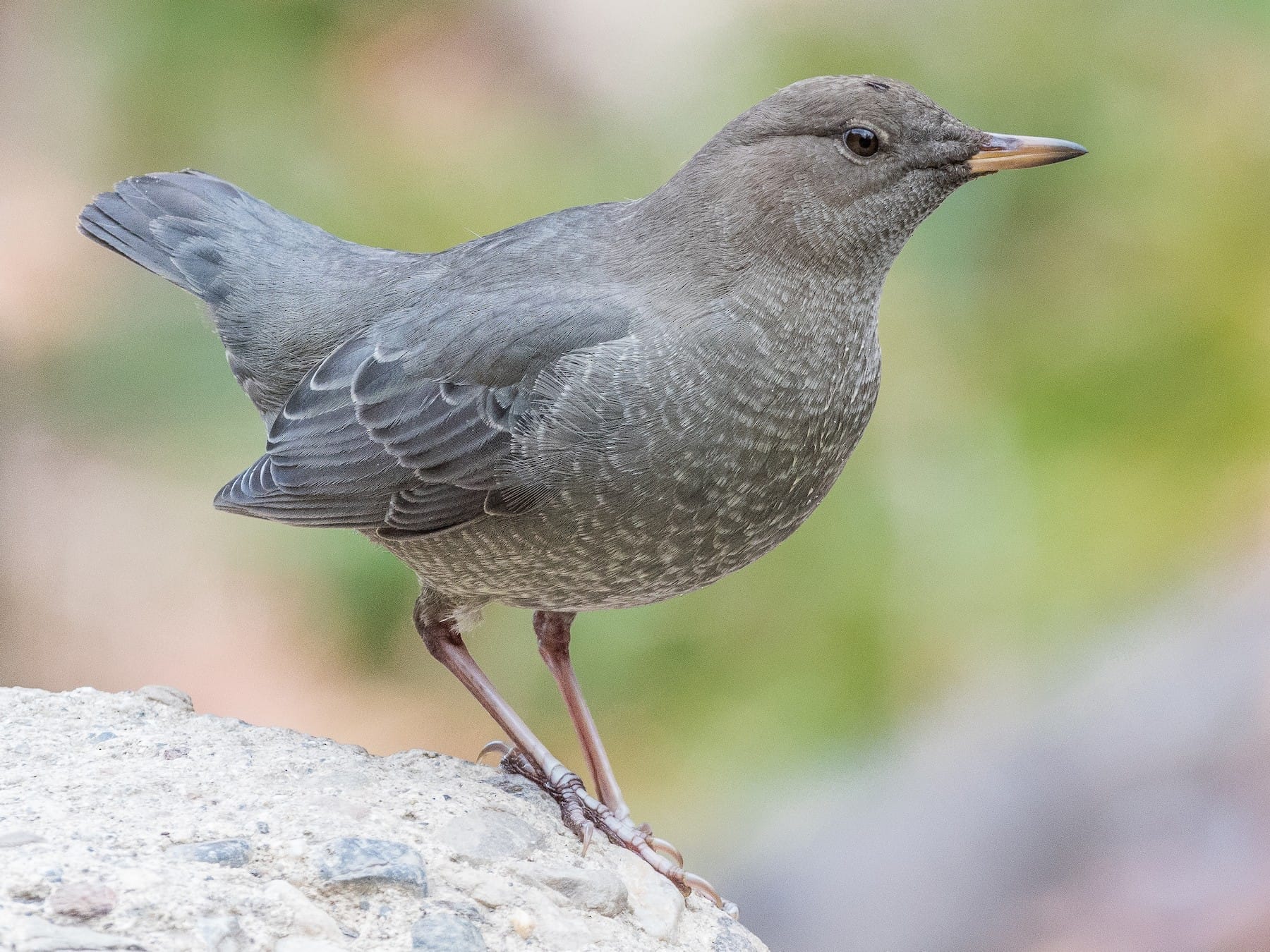
25 Majestic Birds Of Colorado Ultimate Guide With Photos
Size & Shape:
The American Dipper is a bird that lives in the Rocky Mountains and ranges in size from 15-25 cm (6-10 inches) long. It is a medium sized bird that has a gray head and upper body and a yellow belly and undertail coverts.
The American Dipper is a large-bodied North American bird that lives in northern boreal forests. It has black plumage and a long tail. It feeds on seeds, insects, and small animals, and it builds nests of plant roots.
Habitat:
It is common throughout Canada, Alaska, and the western part of the United States.
Diet:
The American Dipper mainly eats seeds, insects, and small animals. It also eats a variety of fruits, berries, fungi, and tree roots.
Breeding Season:
The American Dipper is active from May to September.
Range:
It breeds in the boreal forest of Canada and the northwestern United States. It winters in the tropics.
Gray Jay
Gray Jay is a bird that is a species of bird of prey and is found in the Northern Hemisphere. The Gray Jay can be found in the Northern part of North America.
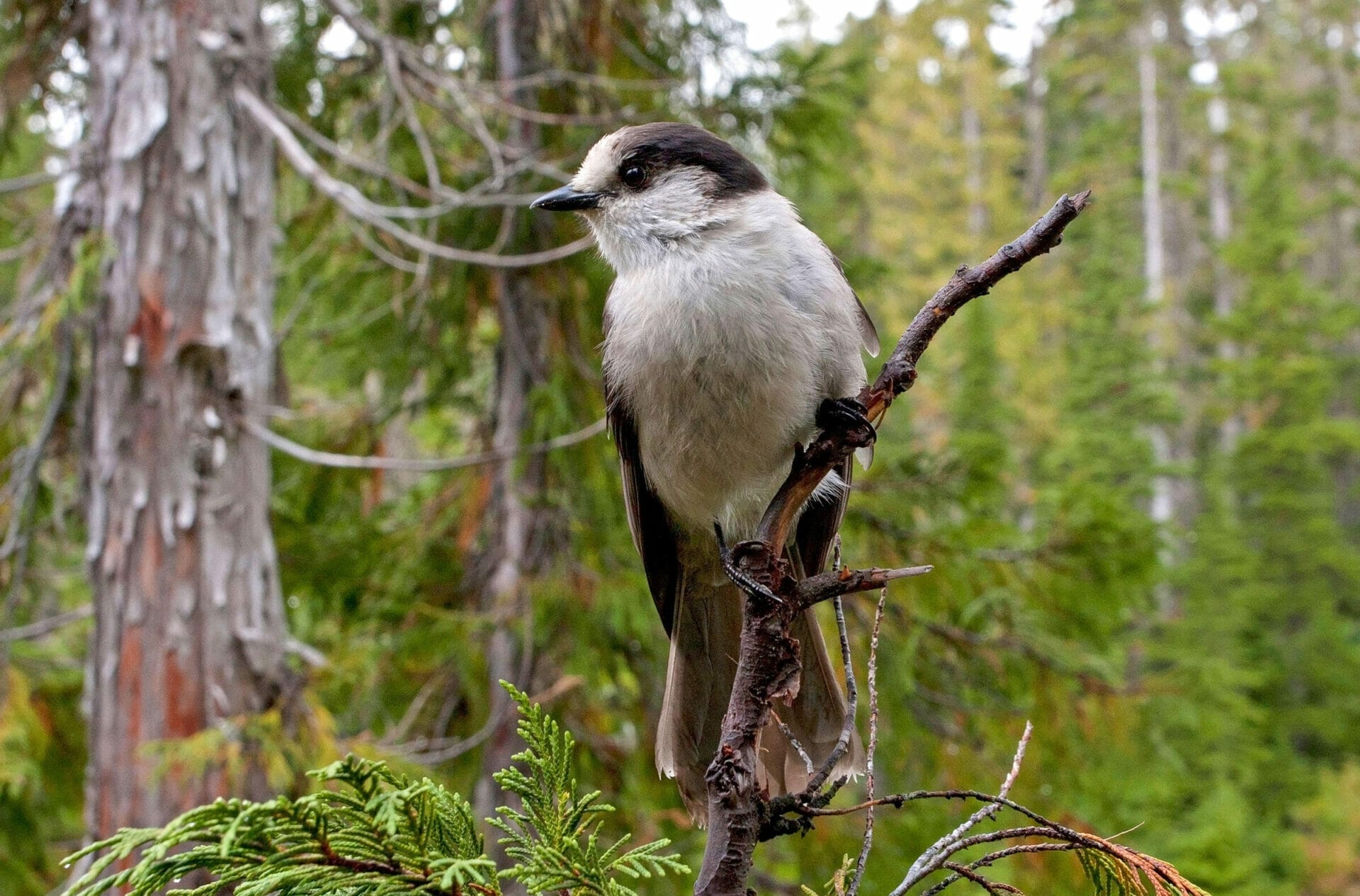
25 Majestic Birds Of Colorado Ultimate Guide With Photos
The Gray Jay is a very intelligent and smart bird and it has been known to show some very strange and interesting behaviors. One of the strangest behaviors shown by the Gray Jay is that it can be seen to mimic the sound of a human voice.
If you are looking for an interesting bird species to add to your backyard or feeder, gray jays are a great option. Gray jays are very social birds and can often be found in large flocks. They are also known to be quite intelligent and can be taught to perform tricks.
They are also pretty easy to care for and can live in a wide range of climates.
Size and Shape
Gray jays are small birds with a wingspan of approximately 10-12 inches and a weight of around 0.5 ounces. They have a head that is similar to a crow and a black and white color pattern. They have a rounded tail and two white wing bars.
Habitat
Gray jays are found throughout North America and can be found nesting in both deciduous and coniferous trees. They prefer to build their nests in the branches of the trees, but they are not picky about the types of trees they use.
Migration
Gray jays migrate every year to warmer climates during the winter months. They will usually return to the same area every year to nest.
Breeding
Gray jays usually breed between March and June in the Northern Hemisphere. They will lay two to four eggs per clutch, with each egg being approximately 2.5 ounces. The eggs will be pale blue or white with dark brown blotches.
Nesting
Gray jays prefer to build their nests in the branches of trees, but they will nest in other structures as well. They will usually select a tree with a fork or branch that is at least five feet from the ground. They will also use a nest box that is about 1.5 inches deep.
Color Pattern
Gray jays have a black and white color pattern, which is very distinct. They
Belted Kingfisher
There are many different types of Belted Kingfishers. Some of these types are found in the south-east Asia, some in the east, some in the west and some in the middle.

belted kingfisher feet
However, all of the types of Belted Kingfishers have one thing in common. All of them are beautiful birds. They are also very friendly birds.
Size & Shape:
A belted kingfisher is a small bird found in tropical regions of Africa, Asia, and Australia. The kingfisher is a medium-sized species of kingfisher with a total length of 33 cm. The kingfisher is a slender bird with a long neck and a short head. It has a yellowish-white underside and has a white line down its back. The kingfisher has a brownish-grey body with a black and white pattern on its wings. It has a red bill and orange eyes.
The Belted Kingfisher is a medium-sized kingfisher found throughout India, Nepal, Sri Lanka, Bangladesh, and Myanmar. It is known for its distinctive tail pattern. The species is listed as vulnerable by the IUCN.
Description
The Belted Kingfisher is a medium-sized kingfisher, reaching a wingspan of up to 110 cm. The male is mainly dark blue with a chestnut belly and a yellowish throat. The female is less colorful, with a mainly greyish back, a white belly, and a blackish head.
Distribution
The Belted Kingfisher is found throughout India, Nepal, Sri Lanka, Bangladesh, and Myanmar. It is widely distributed across the Indian subcontinent, where it is found in the plains, hill forests, and mangroves. It is common in most of the southern parts of its range, but rare or absent in the north.
Habitat
The Belted Kingfisher is usually found in rivers, swamps, ponds, and lakes. It is very adaptable, and it can be found in a wide range of habitats. It tends to stay near water, and it can even be found nesting on buildings.
Migration
The Belted Kingfisher is a year-round resident, but it migrates south in winter. It is a nomadic bird, moving from one breeding area to another to avoid harsh weather.
Breeding
The Belted Kingfisher breeds between February and April. The nest is a shallow scrape on the ground, made of sticks, twigs, leaves, grass, and moss. It is located at the base of a tree, or in a tall bush. The nest may be well concealed, and the male will guard it
25 Majestic Birds Of Colorado Ultimate Guide With Photos
White Breasted Nuthatch
White-breasted nuthatches are found in North America. The white-breasted nuthatch is a medium sized nuthatch. The male of this species is known as a “drummer” and the female is known as a “cuckoo”.

The white-breasted nuthatch has a white face with a dark eye line. Its chest is gray with a black breast band. Its belly is white. The legs and feet are brown. The tail is brown and the wings are gray.
Size & Shape
This is a medium sized nuthatch. It has a body length of 11.8 to 13.2 inches. The wingspan of this bird is 14.3 to 15.9 inches.
Habitat
The white-breasted nuthatch is found in coniferous forests and open woods. It is a common species in the northeastern United States and Canada.
Migration
In fall, this bird migrates south to the southern parts of the United States. In spring, this bird migrates north to its breeding grounds.
Breeding
The white-breasted nuthatch breeds in the northern parts of the United States. The nest is usually located near the trunk of a tree.
Nesting
The white-breasted nuthatch builds a cup nest in a cavity in a tree. The nest is made of twigs, moss, and plant material.
Color Pattern
The white-breasted nuthatch has a gray head and a dark eye line. Its chest is gray with a black breast band. Its belly is white. The legs and feet are brown. The tail is brown and the wings are gray.
Behavior
The white-breasted nuthatch is a social bird
Cedar Waxwing
The Cedar Waxwing is a very common bird in North America, but it is also found in the UK, Scandinavia, and some areas of Russia. It is an insectivorous bird that feeds on sap and honeydew from aphids and scales.
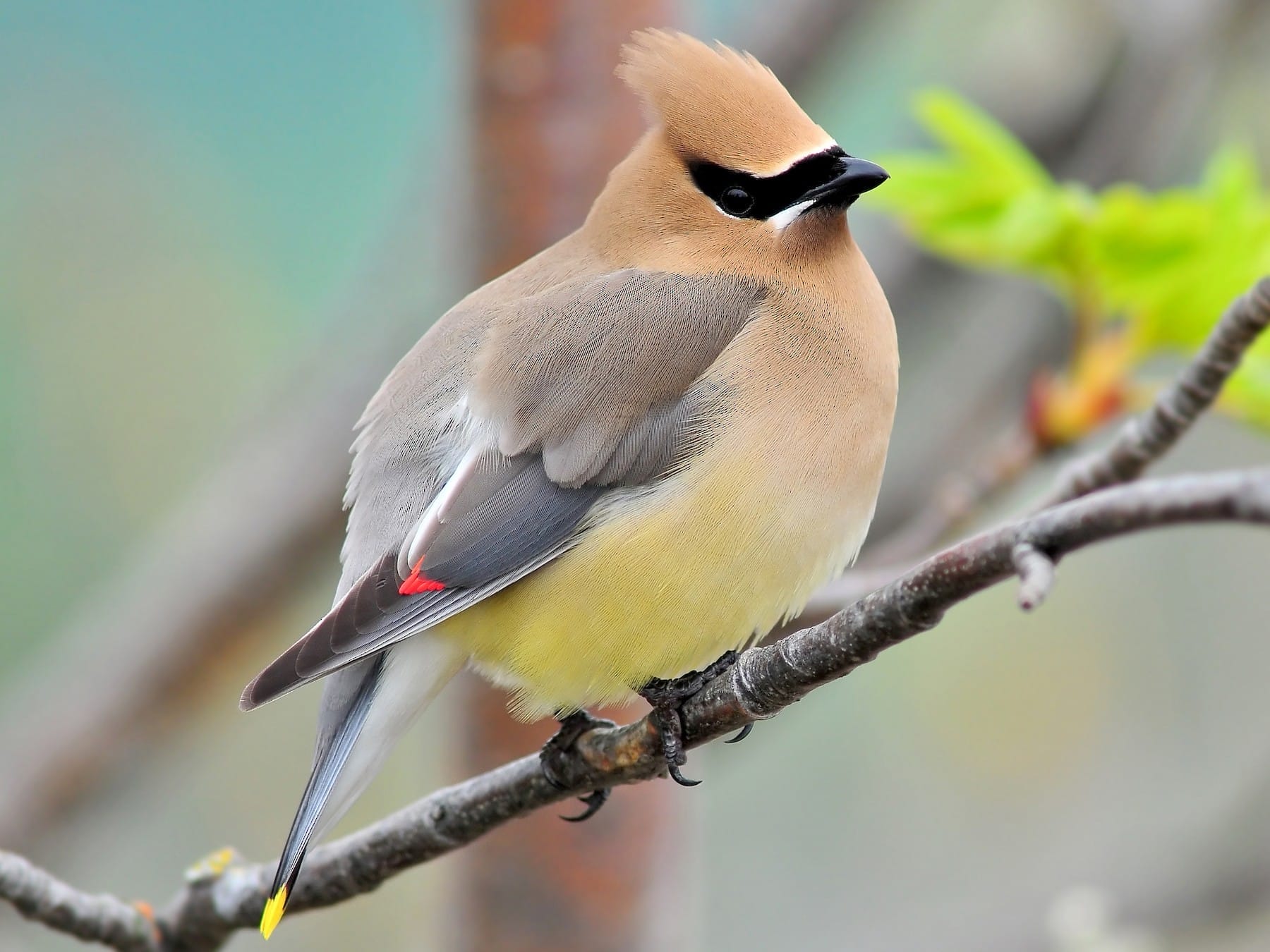
Cedar Waxwing
Cedar waxwings are birds that breed in North America. They are medium-sized birds with short tails and round, pointed bills. Their short, thick, bristly plumage is grayish brown above and white below.
The birds migrate in fall and spring. Cedar waxwings are usually seen in pairs or small flocks.
Size:
Cedar waxwings are typically 6-7 inches long.
Shape:
Cedar waxwings are stocky with long tails.
Habitat:
Cedar waxwings are found throughout most of Canada and Alaska.
Migration:
Cedar waxwings migrate south for the winter.
Breeding:
Cedar waxwings breed in early spring and lay 3-6 eggs in a nest on the ground.
Nesting:
The nest is a shallow bowl made of twigs and moss.
Color Pattern:
Cedar waxwings have a spotted or streaked pattern on the wings.
Behavior:
Cedar waxwings feed on berries and insects.
Black Capped Chickadee
Black capped chickadees are a common species found throughout the United States and Canada. They have a black cap and a red face. Their tail is long and pointed. Black capped chickadees are typically seen in woodlands and forests. They can be found nesting in tree cavities. They are often seen around bird feeders.
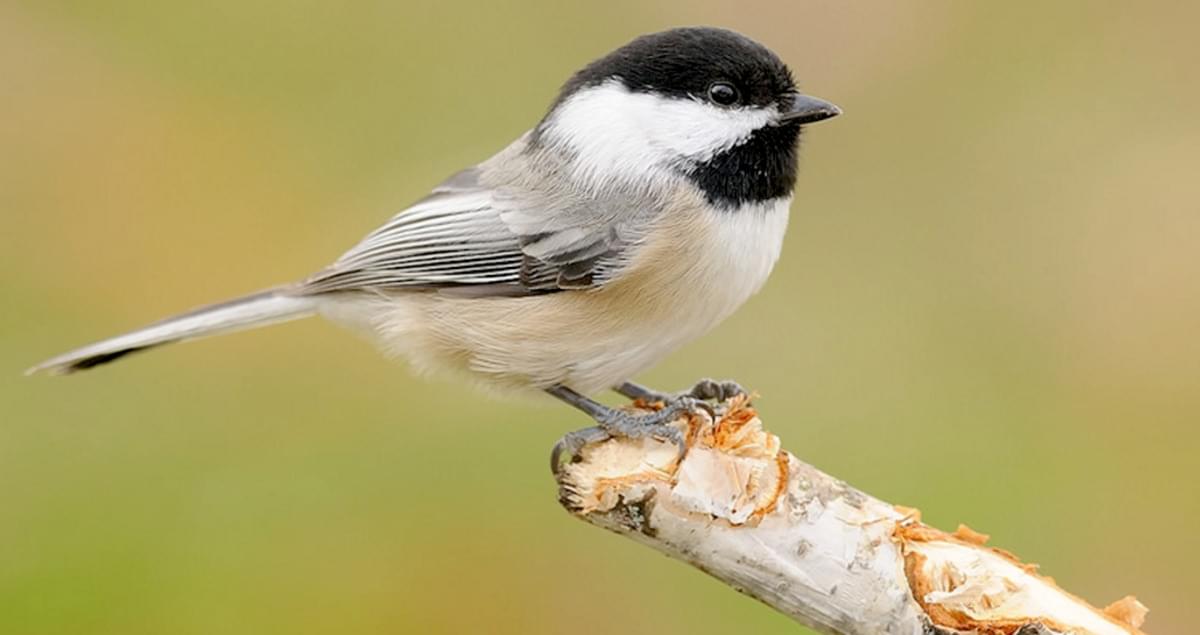
Black Capped Chickadee
The Black-capped Chickadee is a medium sized songbird that is very common throughout North America. It is a member of the genus Parus and the subfamily Parini. This bird is named after the black cap on its head. It is known by several names, including black-capped chickadee, black-capped titmouse, and black-headed chickadee.
The Black-capped Chickadee has a long tail and is a long legged bird. The legs are long enough to allow the bird to hop along the ground. Its feet are strong enough to help it walk along the ground. The legs are covered with feathers. The toes of the foot are webbed. The bill is short and pointed.
Size and Shape:
Black-capped Chickadees are small birds. They are usually between 4 and 7 inches long. Their average weight is 3 to 5 grams. They are usually found in pairs, but they may be seen in small groups. They are mostly seen in coniferous forests. They are found in open areas of forest. The habitat is usually near water. They feed on insects, spiders, and seeds.
Habitat:
Black-capped Chickadees are found in the United States. They are found in Canada and Mexico.They can be found in southern Canada and the southern part of the United States.
Migration:
Chickadees migrate every year. They leave their northern breeding grounds during the spring. They fly south and arrive in Mexico and Central America by late June. Then they fly back north and arrive back in their breeding grounds in the United States
25 Majestic Birds Of Colorado Ultimate Guide With Photos
American Kestrel
American Kestrel are small, brownish-gray, medium-sized falcons with a distinctive wedge-shaped tail. They are migratory, spending winters in North America and summers in Central America. American Kestrels nest on the ground, but occasionally also build nest boxes.
25 Majestic Birds Of Colorado Ultimate Guide With Photos

American Kestrel
American Kestrel are medium sized raptors with long tails that are generally found in open habitat. They are mostly found in North America, but can also be found in South America. They are very active birds and fly fast. American Kestrels are generally seen soaring over open areas like prairies or deserts. They will swoop down and capture prey. They are usually seen in pairs or small groups. The pair will nest in a tree cavity or cliff.
Size & Shape:
American Kestrel are small, brownish-gray, medium-sized falcons with a distinctive wedge-shaped tail. They are migratory, spending winters in North America and summers in Central America. American Kestrels nest on the ground, but occasionally also build nest boxes.
Habitat:
American Kestrel are found in open woodlands and prairies throughout North America. They are generally found in areas with plenty of food sources.
Migration:
American Kestrels migrate from northern states to southern states during fall migration. In spring, they return to the northern United States.
Breeding:
American Kestrels breed in late April to mid-June. Females lay two to three eggs in a nest box or hole in the ground. Eggs hatch in 20 to 25 days.
Nesting:
American Kestrels nest on the ground. The female builds the nest and incubates the eggs. The male brings food to the female. The female takes care of the chicks.
Color Pattern:
American Kestrels have dark gray upperparts and light gray underparts. They have a black band on their tails. Their legs are dark gray.
Behavior:
American Kestrels are territorial, aggressive birds. They defend their territory against other birds and will attack intruders. They are omnivorous, eating insects and rodents. 25 Majestic Birds Of Colorado Ultimate Guide With Photos. 25 Majestic Birds Of Colorado Ultimate Guide With Photos
Golden Eagle
Golden eagles are large raptors that are found in temperate regions of the Northern Hemisphere. They are known for their beautiful plumage, and are generally found in open habitats. They are a symbol of strength and power. The Golden eagle is also the national bird of Canada.
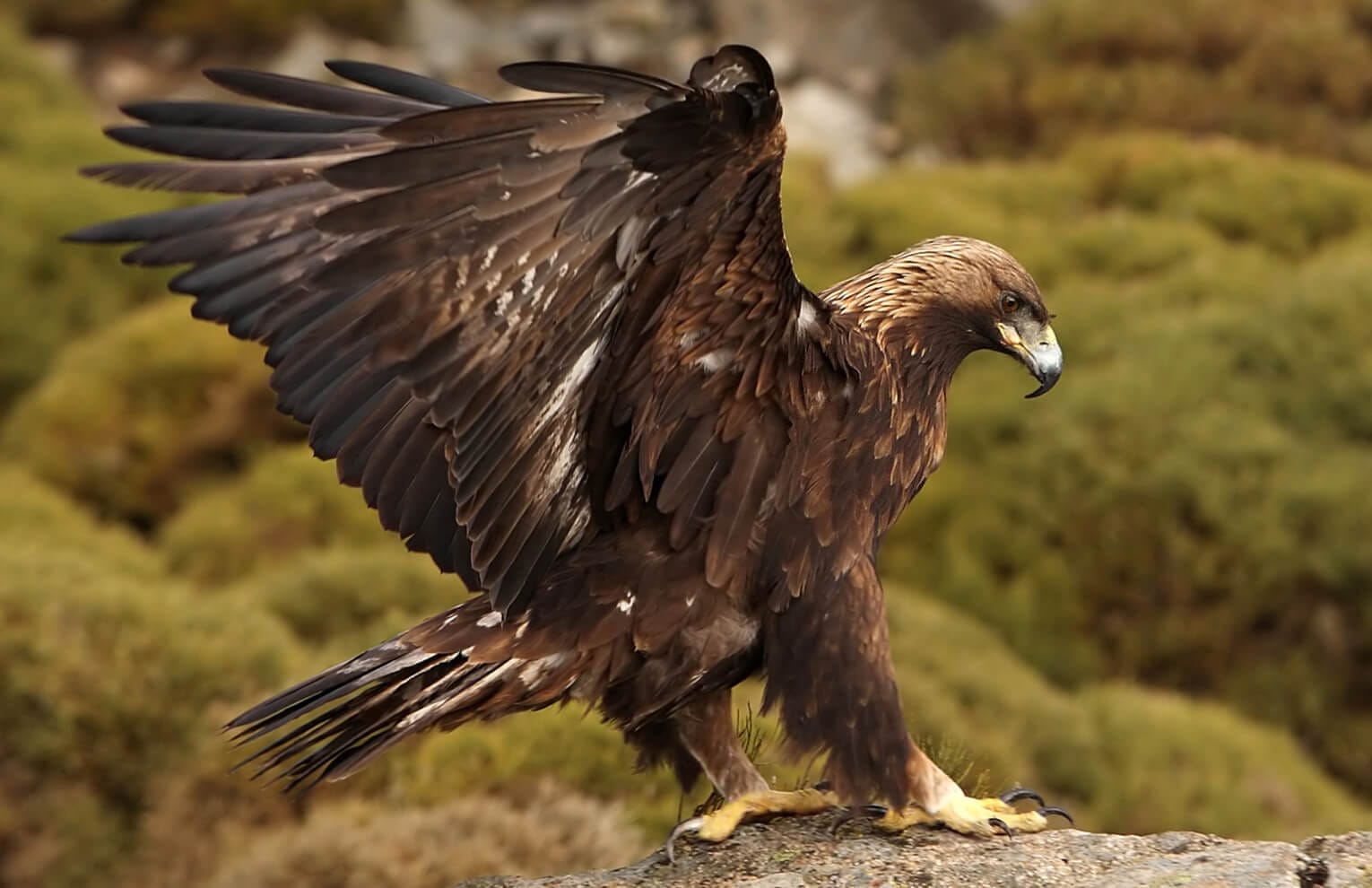
Golden Eagle
The Golden eagle is a large raptor, with a wingspan of up to three meters. Its feet are adapted for walking on branches, and its talons are strong enough to kill prey. It has a bald head, a short tail, and a sharp beak.
Size & Shape:
Golden eagles are medium-sized birds that weigh from 2.5 to 4 kilograms. Their wingspan can be up to 3 meters. They are slender and have a very long tail. The Golden eagle has a large head, with a very large bill, a bald head, and a long neck. The golden eagle’s beak is sharp and can easily penetrate prey. The feathers of the golden eagle are bright yellow. The tail of the golden eagle is a long, straight, and slender piece of skin. The legs are relatively long.
Habitat:
The Golden eagle is found in temperate regions of the Northern Hemisphere. They are known for their beautiful plumage, and are generally found in open habitats. They are a symbol of strength and power. The Golden eagle is also the national bird of Canada.
Migration:
In the fall, Golden eagles migrate to the northern parts of North America, South America, and Europe. They stay in these areas until the spring when they return to the breeding grounds.
Breeding:
The Golden eagle is a year-round breeder. In the fall, the
25 Majestic Birds Of Colorado Ultimate Guide With Photos
Bee Eater Bird
The bee eater bird is a large, colorful, tropical bird that was once common in South America but has been reduced to a very small population in Brazil, Argentina, Paraguay, and southern Mexico. The bird’s name comes from the fact that it feeds on bees and other insects.
25 Majestic Birds Of Colorado Ultimate Guide With Photos
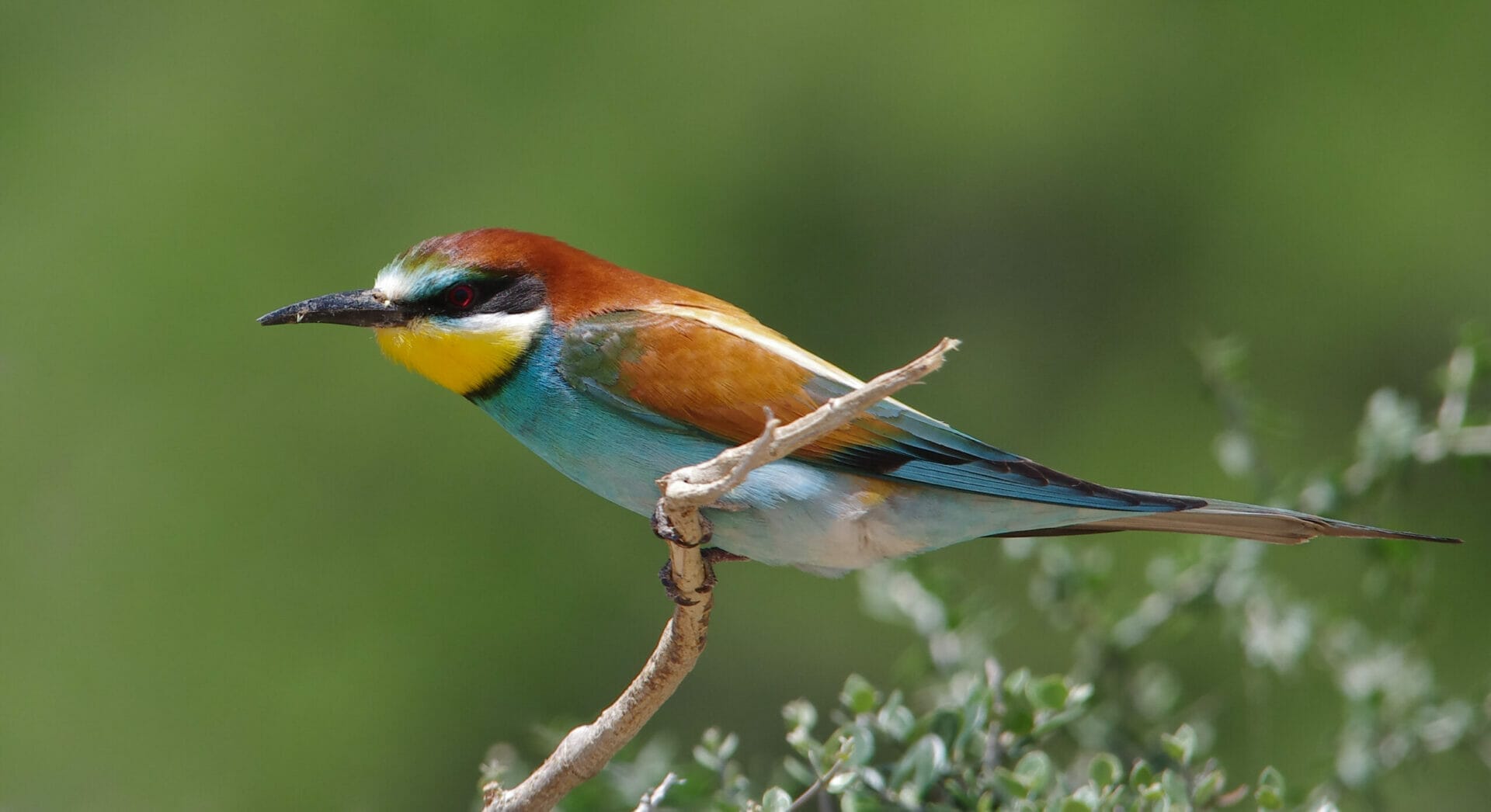
25 Majestic Birds Of Colorado Ultimate Guide With Photos
It is a large, noisy, ground-dwelling bird that makes a characteristic buzzing sound as it flies through the forest, where it is usually seen alone or in pairs. Bee eaters are sometimes called bee hawks because of their habit of diving from the air and catching insects on the ground.
The bee eater is a medium-sized, stocky, strong-legged bird with a short, thick, wedge-shaped bill. It has a long, rounded tail and a short neck with a prominent crest. Its wings are rounded and broad and its legs are short and powerful. Its head and neck are black and its back and sides are greenish-brown. The underparts are white. The throat is brown, and the tail is yellowish-white with two black bands. The legs are dark. 25 Majestic Birds Of Colorado Ultimate Guide With Photos
In the wild, the bee eater bird is found in lowland rainforests, swamps, and wet grasslands. It is a solitary bird, and pairs do not stay together all year round.
25 Majestic Birds Of Colorado Ultimate Guide With Photos
Size & Shape:
The bird is roughly the size of a turkey, with a long, wedge-shaped beak and a large, triangular head. It has a short, thick, wedge-shaped bill. It has a long, rounded tail and a short neck with a prominent crest. Its wings are rounded and broad and its legs are short and powerful. Its head and neck are black and its back and sides are greenish-brown. The throat is brown,
Secretary Bird
Secretary birds are among the smallest species of birds that nest in trees. These small birds are known to be found in a wide range of habitats and can be found nesting in trees, shrubs, hedges and gardens. They are generally dark gray in color with a white rump and a bright yellow patch around the eyes. Secretary birds are known to be noisy, singing and whistling songs to attract mates. They are mostly insectivorous, eating insects and spiders.
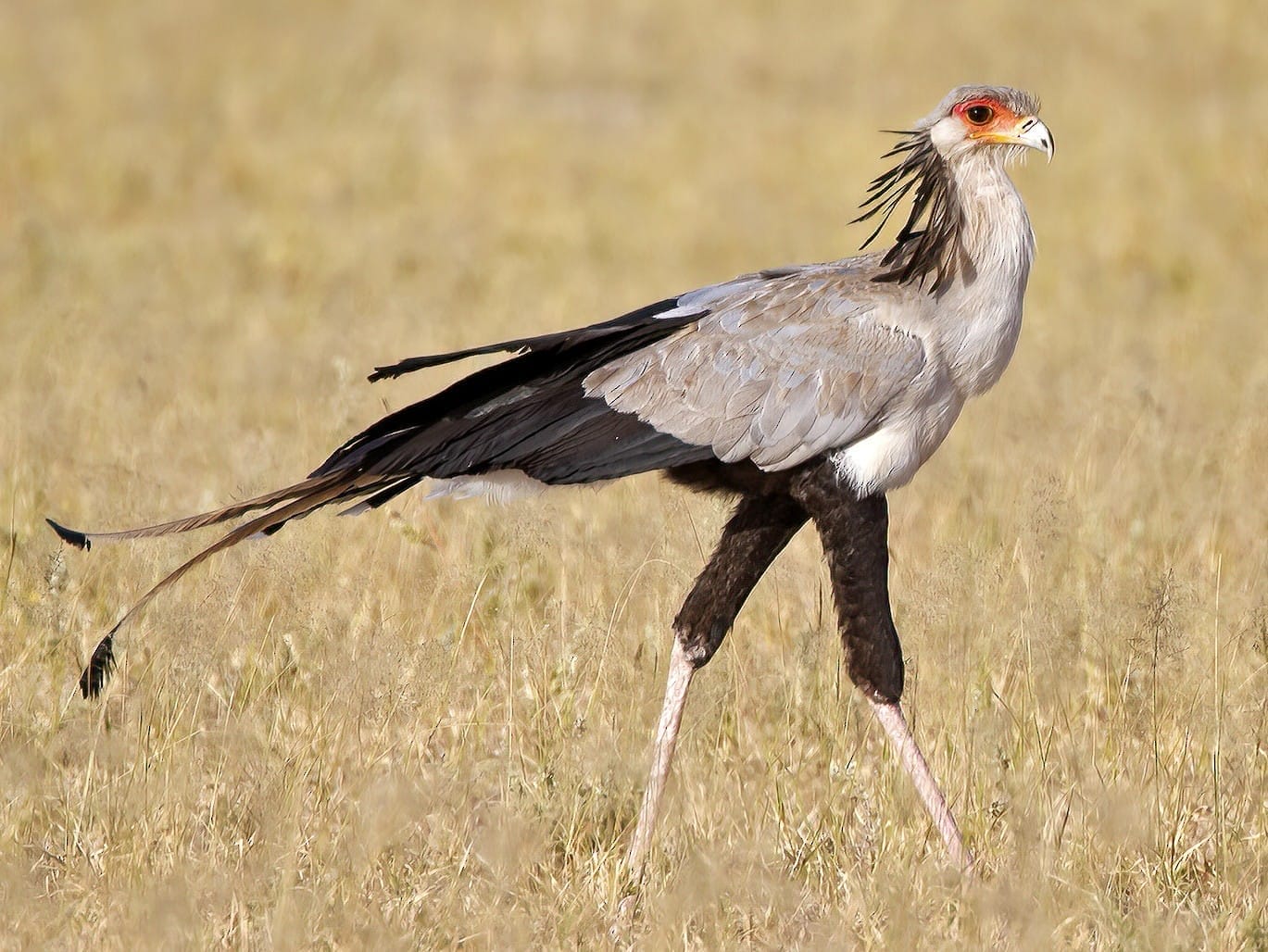
25 Majestic Birds Of Colorado Ultimate Guide With Photos
Secretary birds are mostly sedentary and territorial. They prefer to be in pairs and defend their territories. They prefer to build their nests in dense foliage. They are known to be very protective of their nests and eggs.
They breed from June to August and have one to three broods per year.
Secretary bird is one of the most common species of birds in the world and can be found in almost every country. It has also been recorded in almost every continent except Antarctica.
Size & Shape:
Secretary bird can be found in the following sizes and shapes:
Length: Between 1.1 And 1.5 m (3 ft 7 in and 4 ft 11 in)
Wingspan: Between 1.9 and 2.1 m (6 ft 3 in and 6 ft 11 in)
Weight: 3.74 to 4.27 kg (8.2 to 9.4 lb), with a mean of 4.05 kg (8.9 lb)
Habitat:
Secretary bird is commonly found in deciduous forests, woods, savannas, gardens, parks, and suburbs.
Migration:
Secretary bird migrates seasonally between April to July. They migrate south for the winter.
Breeding:
Secretary bird breeds in the month of May and June. It has one to three broods per year.
Nesting:
Secretary bird builds their nests in dense foliage. They build their nests in hollows in trees, shrubs, hedges, and in gardens.
Color Pattern:
Secretary bird has a black body with a white rump and
25 Majestic Birds Of Colorado Ultimate Guide With Photos
Read More Article: Are Bats Birds
Read More Article: Purple Birds-10 Purple Bird Breeds
Read More Article: Do Birds Have Teeth
Read More Article: Do Birds Have Sex
Read More Article: Michigan Birds: Top 15 Michigan Birds
Read More Article: SamFw FRP Tool 3.0


